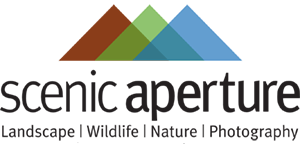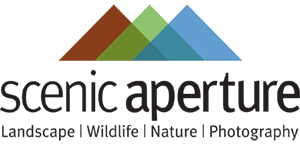About Scenic Aperture
- Frequently Asked Questions
Can you provide references?
Yes! Give us a call. We’ll connect you with a Scenic Aperture alumnus who can give you a first-hand account of what it is like to attend one of our workshops. We are proud that over 50% of our workshop attendees are repeat clients. Once you attend your first Scenic Aperture workshop, we’re confident it won’t be your last.
Is your business more than just a web site?
It is indeed. Frank Comisar founded Scenic Aperture in 2011. We're incorporated in the State of Colorado, as Scenic Aperture, LLC. We have a physical presence in Colorado from which we book workshops and sell Frank Comisar’s fine-art photography prints. Our physical address is 708 Main Ave., Durango, CO 81301. Our phone number is 970-385-5853
What is the cost of a workshop?
The cost of workshops vary depending on what’s included and duration. Refer to specific workshop pages for pricing. A 50% deposit is required to secure your registration. Final payment is due 60 days prior to the start of the workshop.
What are your payment options?
We accept Visa, MasterCard, American Express, and Discover credit cards, personal checks, bank wires, and PayPal.
What's included in the workshop?
What’s included varies with each workshop. All workshops include photography instruction, fun, and inspiration. Most include lodging. Some include meals and transportation. Refer to each workshop page for specifics. Typically, we carpool to photoshoots. You may be asked to drive to one or two shoots.
Is single occupancy lodging available?
We offer single occupancy lodging on most workshops for an additional fee. Give us a call to check availability and cost. Most workshops are set up for double occupancy. If you’re traveling alone, single rooming is not required, we’ll find you a suitable roommate.
What About Meals?
Unless otherwise indicated, meals are not included in the price of a workshop. Participants are encouraged to carry nutrition bars, snacks and water during photo shoots. Restaurants are usually available at or near our lodging facilities. During workshops, many people find a two-meal routine (e.g., a late breakfast after a sunrise shoot and either an early or late dinner before or after a sunset shoot), supplemented with nutrition bars and snacks, works well. Participants shall be responsible for their dietary needs.
What is your cancellation and refund policy?
We offer refunds, with limitations if you wish to cancel your reservation. Please see our Terms and Conditions for more information. We strongly suggest that you obtain travel insurance to cover lost expenses due to any unforeseen circumstances that require you to cancel.
What is the physical difficulty of your workshops?
Most of our workshops are pretty easy. Refer to each workshop’s page for details. Many workshops take place at high elevations (above 5,000’) so thin air and altitude sickness can sometimes be an issue for some.
Normally we park within 100 yards or so of our shoot locations. We typically don’t do a lot of hiking or climbing because we want to spend most of our time on photography. However, you must be able to carry your equipment up to ½ mile over uneven, rocky, sandy, muddy, or inclined terrain without assistance.
Also, our days are long. We typically start each day before sunrise and go to well after sunset. Some of our lodging facilities are not handicapped accessible; stairs may be involved.
Do you suggest Medical Evacuation and Trip Insurance?
We highly recommend Trip Insurance which typically covers some or all of your lost expenses when you have to cancel a trip due to an illness or injury, or other reasons (depending on the coverage).
We highly recommend Medical Evacuation insurance for those workshops located in remote locations. Medical Evacuation Insurance covers your medical evacuation to the nearest hospital for medical treatment. Some policies will even evacuate you to your home hospital.
Can I bring my spouse on a workshop?
Yes, for most of our workshops a non-photographer spouse or friend is welcome! But please let us know in advance if someone will be joining you so we can make sure they are properly accommodated. Some workshops are better suited for the non-photographer than others. Additional fees may apply. Give us a call to discuss.
How many guests are on your workshops?
It depends on the workshop. Most landscape workshops are limited to 8 photographers, while most wildlife workshops are limited to 6 photographers. But there are exceptions. Refer to specific workshop pages for details.
What photography gear do I need?
At the risk of oversimplification, all you really need is a digital camera, a lens appropriate for the workshop (i.e., telephoto for wildlife), and a tripod. Of course, if you have them, back up bodies, additional lenses, and filters may come in handy. You might also want to bring a laptop computer loaded with your favorite post-processing software. You will receive a complete gear list upon receipt of your workshop deposit.
I’m a beginner, what should I know about my camera before I arrive?
You don’t have to be an expert photographer. We love beginners. However, please come to the workshop familiar with your gear. You don’t have to be an expert, but at least know where to FIND and how to ADJUST the basic settings listed here. Learning the basics of your camera during the workshop will take time away from more important things.
Don’t worry if some of this is foreign to you, we will teach you when and how to use these settings. We’ll be there to provide extra help if necessary, too. However, we must rely on YOU to know where to FIND and how to ADJUST them on your camera as is impractical for us to know all camera models.
- Histogram: histograms are used to analyze exposure in the field. Make sure you know how to view your histogram on the LDC in playback mode and, with some cameras, live in the view finder.
- Highlight warnings: otherwise known as “blinkies”. We use blinkies in conjunction with the histogram to analyze exposure.
- Exposure mode: Know how to switch between Aperture priority, Shutter (time) priority, and Manual exposure mode. There is a time and place for each mode. We rarely recommend full auto (Program) mode.
- ISO: Understand how to switch between Auto and Manual ISO (and how to adjust).
- Focus modes: Know how to switch between manual focus, one-shot focus, and continuous focus.
- Exposure compensation: know what buttons/dials to use to add or subtract exposure compensation while using Aperture or Shutter priority exposure mode.
- Drive: know how to adjust your camera’s drive setting between one frame, multi-frame (burst mode), 2-second timer, and 10-second timer.
- Mirror lockup: only available on DSLR bodies.
- Image quality/file type: Know how to set your image file type (RAW or JPG) and the various JPG quality settings.
What happens if the weather is bad?
We shoot rain or shine! Please come to your workshop with rain protection for yourself and your gear. Bad weather often brings great shooting opportunities. Upon receipt of your deposit, you will be provided detailed workshop information that includes anticipated weather and recommended clothing.

